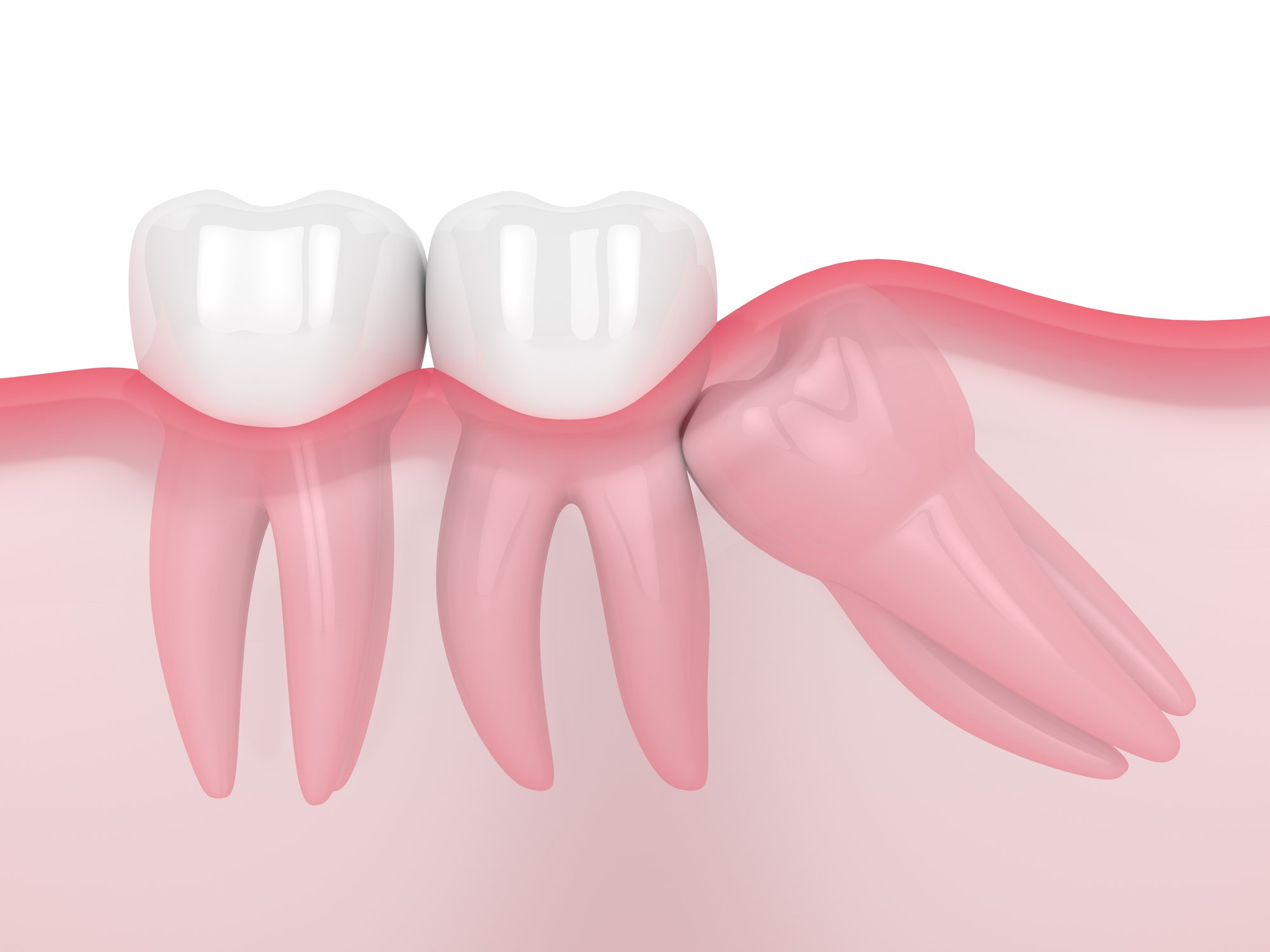
Wisdom teeth, fortunately and unfortunately, do not impart wisdom. These fourth molars are called “wisdom teeth” because they develop much later than the other teeth, typically between ages 17 and 24. So if they don’t make us wiser, why do we have them? And why do they almost always need to be extracted?
Many anthropologists believe that wisdom teeth were necessary when humans mainly consumed roots, meat, leave, and nuts. Today, we soften foods by cooking them and use utensils to cut and crush them when necessary. As our methods of cooking have evolved, so have our bodies, including our mouths. Human jaws today are much smaller; therefore, they cannot always accommodate the wisdom teeth.
A smaller jaw typically results in impacted wisdom teeth that must be removed. Here are the most common symptoms of impacted wisdom teeth:
1. Red, swollen gums
Next to the impacted wisdom tooth, a small flap of gum tissue may become irritated and inflamed due to a build-up of plaque and bacteria. This can occur when a tooth has erupted through the skin or with an impacted wisdom tooth.
2. Shifting teeth
Oftentimes, wisdom teeth grow sideways, pushing against the other teeth. Patients with impacted wisdom teeth often experience radiating pain throughout the mouth because of tooth movement. Eventually, the teeth may begin to turn in an effort to make room for the wisdom teeth. Patients who are experiencing dental pain throughout the mouth should contact their dentist as soon as possible to schedule an appointment.
3. Sinus issues
The roots of our upper teeth can press against the sinuses and cause sinus pressure, pain, congestion, and headaches. This issue is rare, but it does occur.
4. An unpleasant taste in the mouth
In some cases, fluid-filled sacs called cysts form next to impacted wisdom teeth. As the fluid leaks, you may experience a bad taste in your mouth, but that’s not the worst of it. When left untreated, the cyst can destroy bones, tooth roots, and other surrounding structures.
5. Pain while eating
When the impacted wisdom teeth push against the adjacent teeth, it can make chewing difficult. Patients may also find that food particles get lodged between their third and fourth molars more easily but are extremely difficult to remove. Leaving food particles lodged between the teeth may lead to cavities or gum disease.
6. Cavities
Impacted wisdom teeth and even fully developed wisdom teeth can be extremely difficult to clean. Cavities and irritated gums are sometimes the first indications that the wisdom teeth should be extracted.
Impacted Wisdom Teeth Woolgoolga
Are you experiencing symptoms of impacted wisdom teeth? Our oral and maxillofacial surgeon, Dr. Mohammed Mansour, is prepared to relieve any pain and discomfort associated with the impaction.
The first step towards pain-relief is a thorough exam where our surgeon will determine how many wisdom teeth are impacted or should be removed. Then, we will schedule your surgical appointment. Dr. Mansour will talk to you about how to prepare for the surgery, what to expect during the procedure, and how to care for your mouth afterward so there are no surprises!
If you’re feeling anxious or scared about this procedure, please let us know. We are happy to answer any questions you have and do anything we can to help you feel at ease on the day of the procedure.
To schedule an initial consultation, contact us today at (02) 6654-0650.


